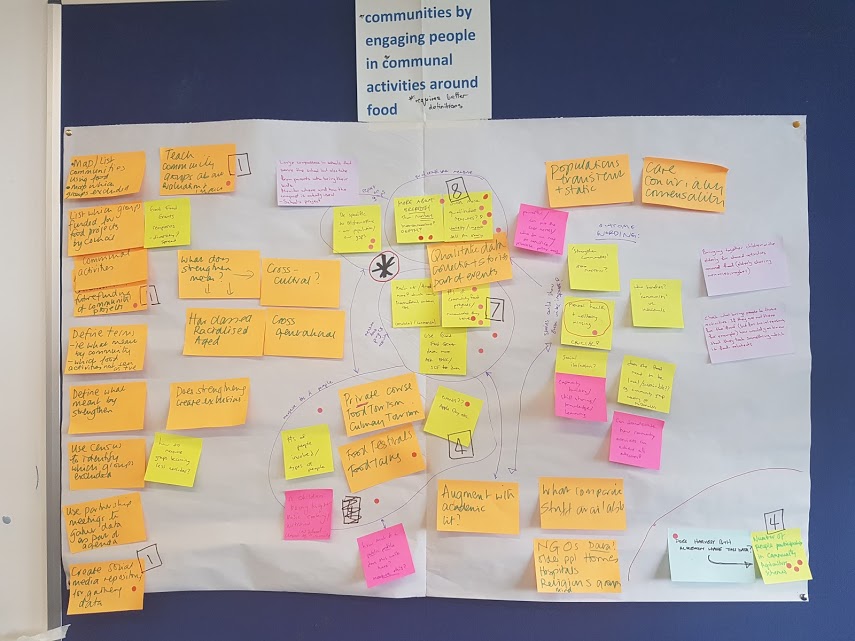Emily O’Brien reports back from joint workshop organised by BHFP and the University of Sussex, following our request for stories about collaboration
In 2017, at the start of the consultation process for the Brighton and Hove Food Partnership’s five year food strategy action plan, my colleagues and I put out a call to the food research community looking for advice on how we could better measure the impact of our city-wide approach to food. We were especially interested in the deeper, ‘systemic’ impact. To us, non-academics, this seemed like an aspirational challenge at the time, requiring innovative ways of thinking.
As an organisation bidding to become the UK’s joint first Gold Sustainable Food City, we knew that our strategic, joined-up approach to food was truly making a difference to our city’s health and wealth, while also addressing deep issues such as food poverty and access. We knew this at a gut level (no pun intended), but what we had difficulty with was demonstrating this impact to funders, supporters or other cities in the Sustainable Food Cities network who might have wanted to follow our example.
Our call had an astonishing and immediate response from colleagues in the research community all over the UK. We were bowled over by the support we received. At this point, we put our heads together and decided to organise a one-day event on the topic, rather than recruiting individual members of an expert panel, as it was originally planned. Why not bring people together and harness their collective wisdom?
The event, which took place in September 2017 and was organised in collaboration with the Sussex Sustainability Research Programme at the University of Sussex, was a great learning experience that influenced every stage of our subsequent, year-long consultation. The main outcome of the day has been our new food strategy outcomes framework, but the discussions during the day were just as important as the final destination. We gained new confidence in our ability to engage proactively with academic colleagues and set out our needs clearly, rather than just waiting to be approached as a partner in a joint research project that might not meet our needs. A key takeaway for us from the day was going beyond limitations not just understanding them, and we now embrace the complexity and the issue of attribution/contribution which until then we found, to be perfectly honest, quite daunting. We also made some great contacts and came away with a lot of new ideas and a sense of collective insight into a difficult problem.

Our academic partner, Adrian Ely from the Science Policy Research Unit at the University of Sussex Business School, also found the experience useful and appreciated being involved from the outset of discussions. We both agreed that it was helpful to think about links between the action plan and the Sustainable Development Goals. Attributing impact remains a challenge, but both Adrian at Sussex and us at the BHFP are excited to take this work forward in the future.
Our food strategy outcomes framework remains a work in progress and we want it to be a living, developing document. It provides us with a profound and practical set of indicators, which we hope will be useful for other cities. And if other places are interested in tracking these indicators, it would be great to compare progress and add a comparison factor to our efforts to understand and demonstrate the impact of a citywide approach to food.
Read the full write up of the joint event, the outcomes framework and a current list of Brighton & Hove Partnerships research needs: https://bhfood.org.uk/research-outcomes-and-impact/
